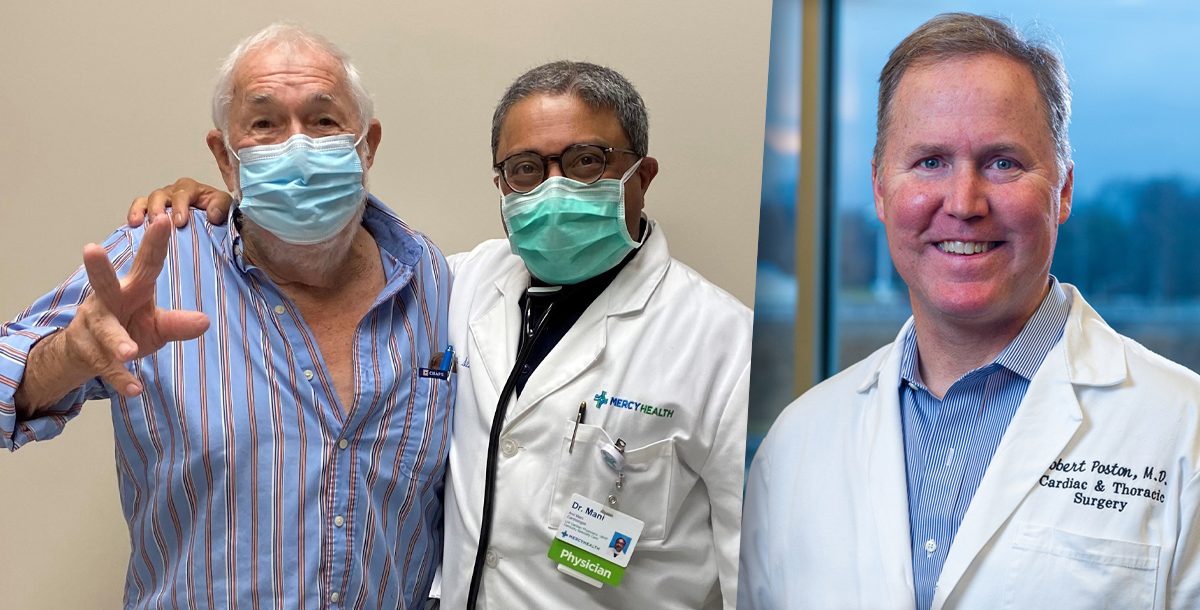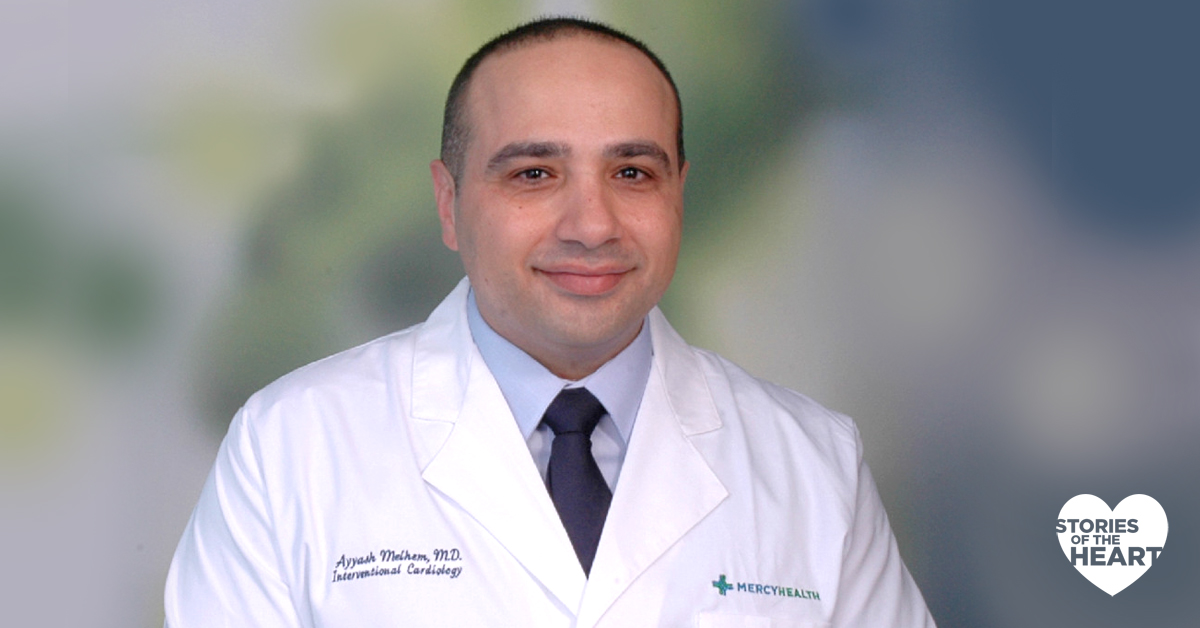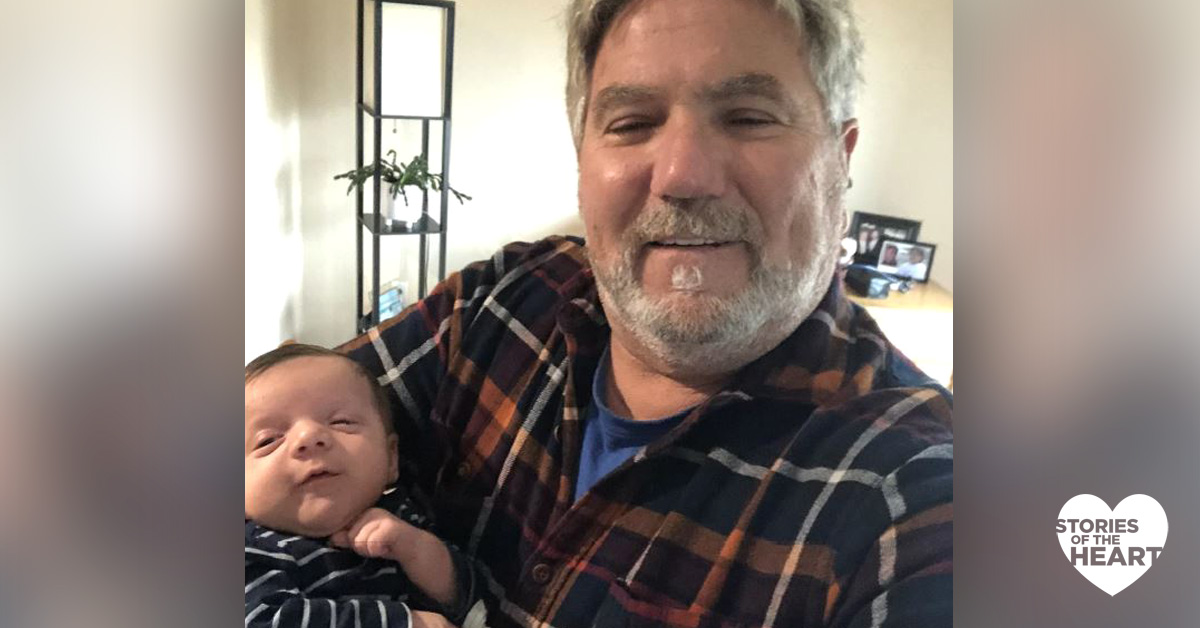“I can dehorn a cow. I can doctor a horse. But on people, I don’t know anything,” Alex McAllister says.
So, when this 84-year-old needed help with recurring chest pain, Alex didn’t leave things to chance. He visited his cardiologist, Anil Mani, MD, (pictured above, left with Alex) and he heard something interesting.
“Dr. Mani said, ‘We got a new thing, a robotic thing. We don’t have to cut you open. We go through your side. It’s much better for you.’ I said, ‘Yeah.’ I agreed to it,” Alex recalls.
The new thing was in fact the arrival of cardiothoracic surgeon Robert Poston, MD, (pictured above, right) a cardiothoracic surgeon, to Mercy Health – Lourdes Hospital.
All robotic surgeries use the da Vinci surgical system, which Lourdes Hospital already has in place for general surgery procedures, including hernia repair, gall bladder removal, appendectomy, colon surgery and more. Dr. Poston, who has performed robotic-assisted cardiac surgery since 2005, performed western Kentucky’s first minimally invasive, robotic-assisted cardiac surgery to clear arteries on Alex on Friday, March 11.
Dr. Poston was joined by Dr. Mani in the hybrid operating room and they worked together to clear two blockages from Alex’s arteries.
“We had to do something to help Alex’s outcome,” Dr. Poston shares. “He was experiencing chest pain and having to take nitroglycerin to treat it. The location of his blockages put him at risk for a heart attack.”
Dr. Poston continues, “most patients who come in have multiple blockages. We can perform robotic surgery for those arteries that are not easily stented. I performed the bypass on the vessel that Dr. Mani could not easily stent. The other blockage was in the artery on the back of the heart that I couldn’t reach. Dr. Mani placed a stent in that one.”
Overall, robotic surgery offers advantages to both the surgeon as well as the patient.
“I like it because it enables minimally invasive techniques,” Dr. Poston explains. “It’s the same procedure, just a different incision. The robot allows you to duplicate what you could do with your hands in the thoracic cavity and enhances it thanks to the high-resolution camera that comes with the robot. It allows for greater accuracy. Compared to open-heart surgery, patients spend three days in the hospital versus five or six days. The main advantage is when you get home. You have a two- to three-week recovery versus the two- to three-month recovery from open-heart surgery.”
Alex’s wife has had three open-heart surgeries, so he was familiar with how challenging recovery could be for patients and their families. He shares that his experience has been completely different.
“For being as old as I am and having just had this bypass, I would recommend it to anybody,” Alex says. “Dr. Poston is a good doctor and he’s pretty smart. I have not taken a pain pill since I’ve been home. I feel great. It’s better than having open-heart surgery. I’ve been walking and enjoying life.”
That’s just what Dr. Poston likes to hear.
“Many older patients won’t have open-heart surgery. They manage with medication, uncomfortable symptoms and less quality of life,” he says. “Robotic surgery offers an alternative and they will have treatment they wouldn’t otherwise have considered.”
Learn more about the heart care and surgery services we offer at Mercy Health.






